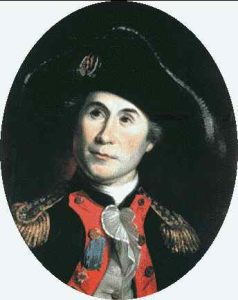Contents
Contents
The Quebec Act was a law passed by British parliament in 1774, which expanded the territory of the Province of Quebec, and opened up religious freedoms for citizens of the colony.
In this article, we’ve explained what the Quebec Act did, and the effects it had. We’ve also provided some key facts about the Act.
Summary
Historical context
In the early 1770s, discontent with the British was growing in the Thirteen Colonies of America.
After the French and Indian War ended in 1763, the British began passing new taxes and other restrictions on the colonies, such as the Stamp Act in 1765, the Townshend Acts in 1767, and the Tea Act in 1773.
This angered the colonists, many of whom believed that the British had no right to tax them without their consent – especially given the colonists had no representation in British parliament, in return for the taxes they paid.
Tensions increased after the Boston Tea Party in December 1773. To punish the colonists, the Coercive Acts, or Intolerable Acts as the Americans called them, were implemented in 1774.
With discontent growing, the British were afraid that French Canadians in Quebec might join the rebellion.
Since inheriting Canada from the French in 1763, the British also found it difficult to govern the colony effectively. The French, who made up 90% of its citizens, were majority Catholic, while the British were Protestant, and there was a language barrier to contend with.
The British implemented changes that upset the French when they took over the colony, restricting religious and political freedoms, and making changes to the legal system.
For example, French Canadians were required to swear an oath to the King before they could work in the public sector. This oath required the rejection of Catholicism, and as a result, most French settlers refused to take the oath, leading to resentment from the local population.
The Act
The Quebec Act was passed in 1774, at the same time as the Intolerable Acts.
Under the Quebec Act:
- The provisions rejecting Catholicism in the oath of allegiance were removed, allowing more French people to participate politically.
- The territory of Quebec was expanded to the south, into parts of what is now Ohio, Indiana, Michigan, and Minnesota, among other states.
- The Catholic Church was once again allowed to collect tithes. A tithe is a tax collected by a church from its members, used to support the upkeep of the church.
- The use of French law was reinstated for civil matters.
- The French system of managing land in the colony, known as a seigneurial system, was reinstated.
Purpose
The Quebec Act was primarily designed to appease the French population in Quebec. This was done to help stabilize the colony, make for more effective governance, and reduce the chances of Quebec joining with the Thirteen Colonies in rebellion against the British government.
The Act was also designed to maintain control of contested territories in America, and prevent the American colonists from claiming these lands as their own.
The British also implemented the act to prevent a repeat of the French and Indian War, which was very expensive for the country. The British wanted to avoid future conflicts, where possible.
Effects
The French population of Quebec was glad to receive many of the changes put forward by the Quebec Act, especially the increased religious freedom offered.
With the Quebec Act, the British were ultimately successful in appeasing the French population, as they remained loyal to the British cause throughout the American Revolution.
However, the Quebec Act upset many Americans in the Thirteen Colonies.
- Some colonists, especially hardline Protestants, were resentful of the religious freedoms granted to the French, their old enemy during the French and Indian War. Many were deeply distrustful of Catholicism, having come to America to escape religious persecution from Catholic rulers in Europe.
- The territorial expansion of Quebec outlined in the act encroached on the land claims of certain American states, especially in the Ohio Valley. Under the British Royal Proclamation of 1763, the colonists were prevented from settling on these lands – putting these territories under Canadian control made the Americans resentful.
- Although the Quebec Act was not officially part of the Coercive Acts, many colonists still considered it a form of punishment by the British, in return for the Boston Tea Party and other acts of resistance.
The Quebec Act led to increased unity among the Thirteen Colonies in response to what was considered British overreach, and it also led to greater distrust of the British government.
While the Quebec Act is often overshadowed by other British laws that upset the colonists, such as the Intolerable Acts, it did play a small role in increasing tensions between the British and Americans prior to the Revolutionary War.
Facts
- The official name of the Quebec Act was “An Act for making more effectual Provision for the Government of the Province of Quebec in North America”.
- British settlers in Quebec were unhappy with the act, as it restored French law, and did not allow for the creation of a democratic government – instead, laws would be decided by a council appointed by the king.
- At the time, the religious freedoms given to French Catholics were unprecedented in the British Empire. This was an extreme measure by British standards.
- The introduction of a mixed legal system under the Quebec Act, retaining French civil law and implementing English criminal law, was a rare example of legal pluralism in the British colonies.
- Some of the policies established by the Quebec Act can be seen as a precursor to the shaping of modern Canada, especially the provisions for French rights.


